MercoPress. South Atlantic News Agency
Tag: Roberto Lavagna
-
Wednesday, November 20th 2019 - 09:56 UTC
Fernandez tells IMF, “we want to make a commitment that we can keep”
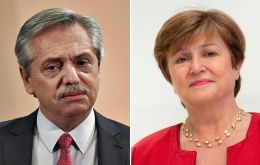
Argentina’s president-elect, Alberto Fernandez, has a “sustainable” plan to meet creditor obligations as well as maintain growth, he told the International Monetary Fund´s managing director Kristalina Georgieva, his office said.
-
Friday, October 25th 2019 - 09:58 UTC
Argentine ready for the return of Kirchnerism defeated by Macri in 2015
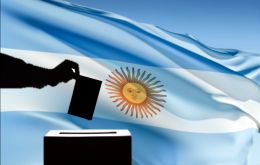
Argentines head to the polls on Sunday with the Peronist opposition strong favourites to take back the presidency from business-friendly reformer Mauricio Macri, who has been stung by a tumbling economy and financial crises.
-
Monday, October 7th 2019 - 09:55 UTC
Opinion Polls in Argentina indicate Fernandez will be the next president
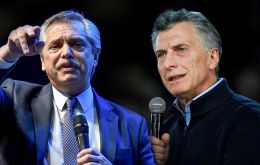
Caution minded since Argentine public opinion polls were so far off the mark during the August Primary mandatory elections which triggered the current major political and financial upheaval in the country...
-
Monday, September 9th 2019 - 09:58 UTC
Argentine presidential candidate proposes “a national unity government”: 'option can't be bad or worse'
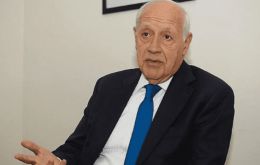
Argentine presidential candidate and ex Economy minister Roberto Lavagna said that the country needs “a national unity government” to overcome the current situation and it's no option having to choose between “bad and worse”.
-
Monday, July 8th 2019 - 10:59 UTC
Argentine presidential campaign takes off with ads on local television

Argentine President Mauricio Macri and his rivals in the October election launched their campaign ads on local TV on Sunday, targeting undecided voters who will be key to choosing whether his policies remain in place another four years.
-
Monday, June 24th 2019 - 09:50 UTC
Argentina lines up for the August primaries; three leading presidential tickets

Months of intense political negotiations and last minute nerve breaking deals came to an end in Argentina on Sunday's zero hour deadline, when the different political groupings had to present to electoral authorities their list of presidential hopefuls, as well as future lawmakers.
-
Thursday, January 10th 2019 - 09:12 UTC
Macri and Cristina Fernandez polarize political scenario, but a moderate opposition figure is emerging
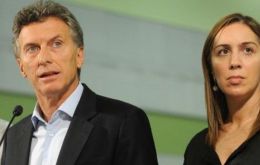
With some eight months to the Argentine primaries when presidential hopefuls for the October election to reelect or oust Mauricio Macri will be chosen, pollster Opinaia, shows that most pre-candidates have a greater negative than positive image. This is possible because of the disenchantment of Argentines with their political system and economic situation.
-
Saturday, November 14th 2015 - 12:29 UTC
The economy and the role of the state expected to be center piece of Argentina's Sunday presidential debate
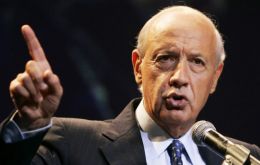
Sunday's presidential debate in Argentina will most probably concentrate on economic policy mainly for two reasons: one that the current system with a dollar clamp, export duties, heavy influence of the government and wild spending has the economy on the verge of collapse; but the option of orthodox policies with drastic cuts in spending, salaries and possibly jobs and consumption is also seen as fearsome.
-
Thursday, October 29th 2015 - 06:15 UTC
An overwhelming majority, 65% voted for change in Sunday's election, said Massa
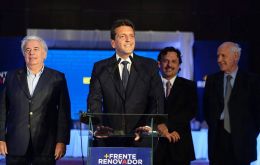
On Sunday 35% of Argentines voted for continuity of Kirchnerism and 65% voted for a political change, and between the two options, change overwhelmingly won, said Sergio Massa, the third ranked candidate who with his 21% has become kingmaker between the two presidential hopefuls for the November runoff, incumbent Daniel Scioli and market friendly opposition, Mauricio Macri.
-
Wednesday, June 18th 2014 - 07:52 UTC
“Judge Griesa's message is reasonable and conciliatory” argues Lavagna
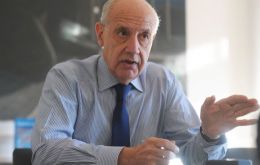
Argentina's former Economy Minister and architect of the 2005 rescheduling of defaulted debt, Roberto Lavagna called for “calm” and “seriousness” to rethink the country's legal strategy following the setback suffered on Monday when the US Supreme Court decided not to hear its appeal against holdout hedge funds.
